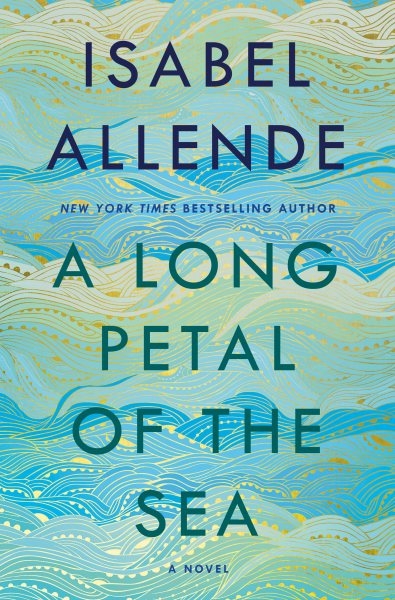
If you enjoy sweeping historical novels then you may want to dig into A Long Petal of the Sea (2020), one of the most recent books by the prolific Chilean-American author Isabel Allende. And if you especially appreciate books that shed light on dramatic past events less likely to be on our reading radar than, say, World War II, A Long Petal of the Sea just might be calling your name.
Over the course of half a century, A Long Petal of the Sea explores two different international conflicts, from origin to aftermath. The first of these is the Spanish Civil War, a battle between the left-leaning Republicans and the Nationalists, fought between1936 and 1939. In a Europe already under the sway of Hitler and his ilk, the Nationalists' win became a portent of terrible fascist things to come. Isabel Allende's central characters, Victor Dolman and Roser Bruguera, are among those on the Republican side who survive the war and are lucky enough to flee Spain as refugees. In exile in Chile, and in tandem with their patrons, friends, lovers, and children, these characters will guide readers through the book's remaining pages, which cover fifty years. Many things transpire during this narrative time, of course, but primary among these is the second international conflict: Chile's bloody coup in 1973, which, thanks to help from the United States, brought about the overthrow of Salvador Allende, who happens to have been Isabel Allende's cousin.
The destruction of Chile's democratically elected socialist government and President Allende's related assassination led to the installation of the oppressive dictator, Augusto Pinochet. Under his seventeen-year leadership, thousands of Chilean citizens were tortured, murdered, or disappeared. An estimated 200,000 went into exile; in Isabel Allende's novel, Victor and Roser become two of these exiles, and homeless, once again.
The famous and fabulous Chilean poet Pablo Neruda makes an appearance in A Long Petal of the Sea, and this, for me, was one of several highlights of the book. It feels eerily timely, too, given current political divisions in the U.S; perhaps this is one reason why Allende chose to write and publish this novel now. Yes, I would have enjoyed a lot more showing and a lot less telling, i.e., more developed scenes with detailed description and fewer summaries of generalized experience. But it was rewarding to gain insight about historical events I knew little about, and by the novel's end, I only wanted to read and learn more.